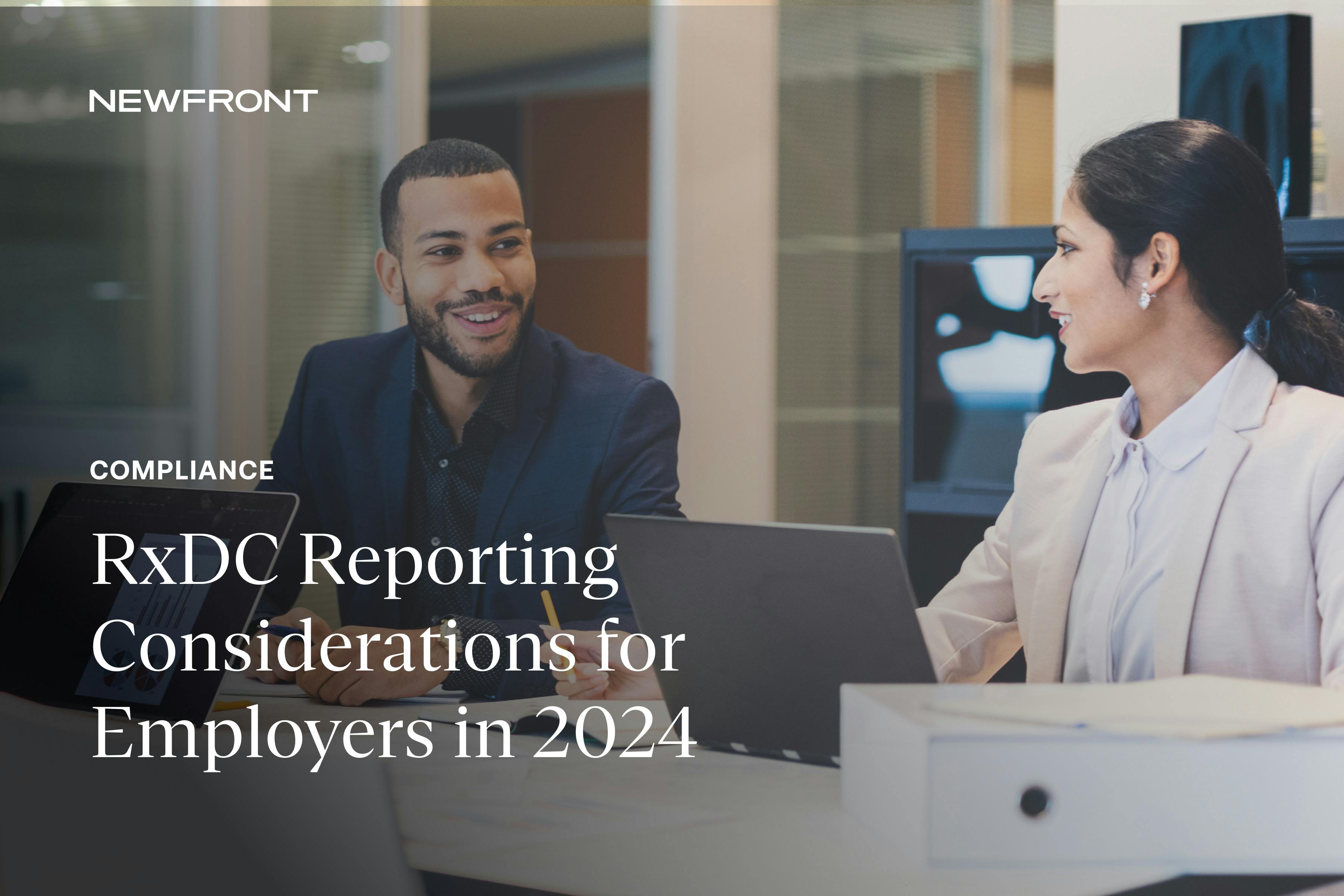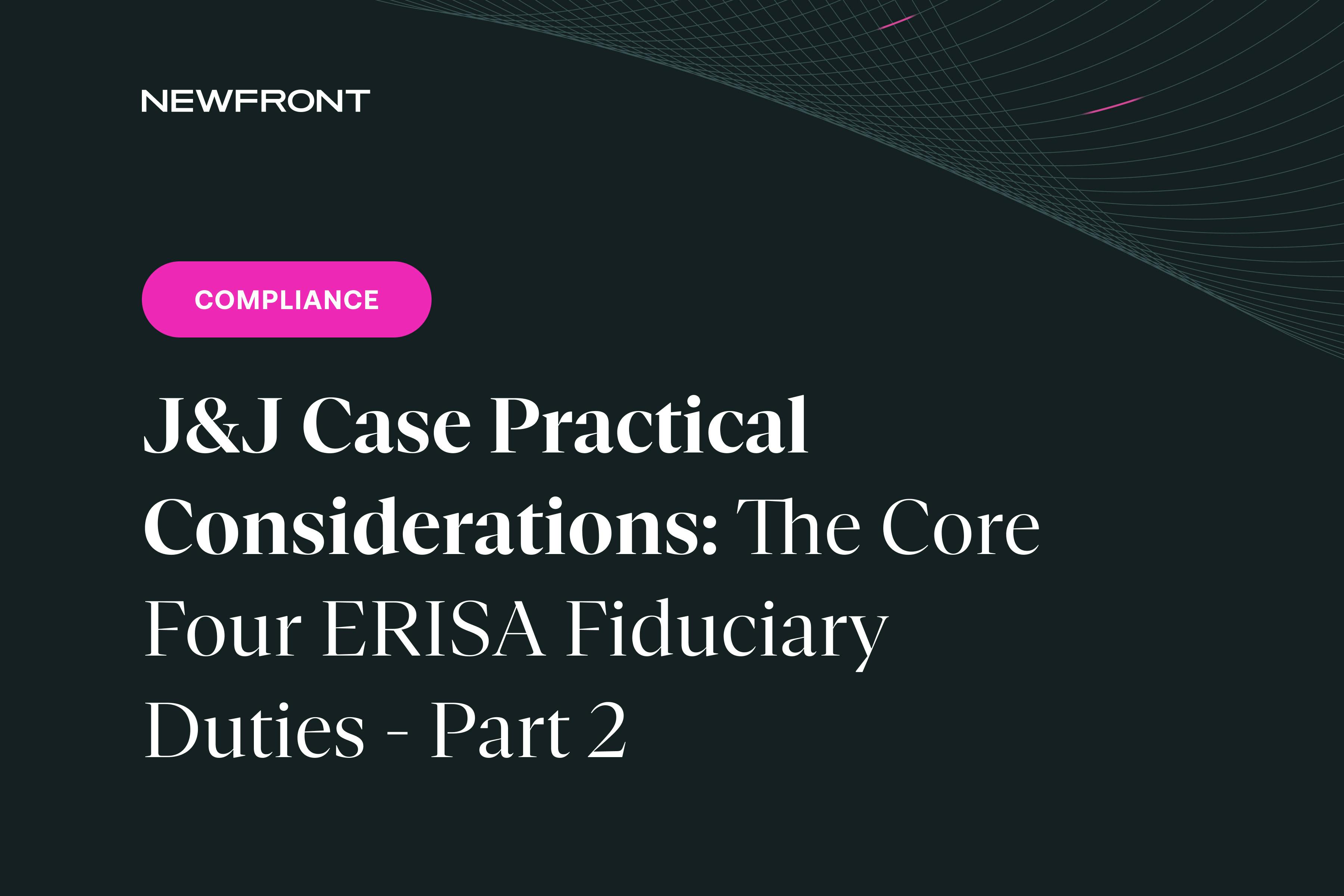Benefit Administration Issue Causes New Hire to Miss Enrollment Deadline
By Brian Gilmore | Published April 20, 2018
Question: A new hire missed the 30-day enrollment window deadline because he says the ben admin system failed to process his election submission on the final day. Can we make an exception and let him enroll now after the deadline?
Compliance Team Response:
This appears to be a situation where it may be reasonable to apply the informal IRS “doctrine of mistake,” which is discussed in more detail below, depending on all the facts and circumstances.
The short answer is it is very difficult to change an employee’s Section 125 election based on a mistake. Absent extremely unusual circumstances, an employee can make a mid-year election only during the new hire election window or upon experiencing a Section 125 permitted election change event (and within the time limits set forth in the Section 125 cafeteria plan document). Those very unusual circumstances are discussed in more detail below.
General Rule: Irrevocable Election
The general rule under Section 125 is that all elections (including an election not to participate by failure to enroll) must be: 1) made prior to the start of the plan year (i.e., prospective) or within the new hire election window, and 2) irrevocable for the plan year unless the employee experiences a permitted election change event. The permitted election change events are set forth in Treas. Reg. §1.125-4 (e.g., marriage, divorce, birth, adoption, change in employment status affecting eligibility). That section does not refer to any doctrine of mistake as a basis for changing an election.
See the Newfront Section 125 Cafeteria Plan Permitted Election Change Event Chart for a detailed summary of the permitted election change events.
Rare Exception: Doctrine of Mistake
IRS officials have consistently provided informal guidance stating that an employee’s election can be changed where there is “clear and convincing evidence” that a mistake has been made. The argument is that you’re not really changing an election mid-year, you’re undoing the election (including the failure to elect as an election not to participate) from ever occurring.
This clear and convincing requirement is a very high standard. If the mistake is made by the employer (e.g., data entry, data processing, or other administrative errors), it is much easier to show that there clearly was a mistake. Where the mistake is made by the employee, the employer will often not have a surefire way of knowing whether it was genuinely a mistake, or the employee just changed his mind. The facts and circumstances at issue will have to be very persuasive because the clear and convincing evidence bar is very high.
Facts in This Situation Could Support the Doctrine of Mistake
To show clear and convincing evidence that the doctrine of mistake should apply here, all the facts and circumstances will need to clearly show that the employee actually made a mistake at the time the election (including an election not to participate by failure to enter an election) occurred. The presumption is that the employee has just changed his or her mind after the fact, which is exactly what the Section 125 rules are designed to prevent.
Based on the situation described for this new hire, there may be sufficient evidence here of a mistaken election that could reasonably qualify as clear and convincing evidence. It appears that the employee partially completed the election process, without ever completing the elections, but the system failed to properly accept the final election submission at the deadline.
Ideally there is some forensic analysis of the enrollment system available to confirm that the employee had actually partially completed the election process—and even better that analysis will show what elections the employee provisionally made and attempted to submit. That would be evidence of the system error raised by the employee, and present a very strong argument for this situation constituting clear and convincing evidence of a mistaken election (i.e., mistaken failure to elect).
Ultimately, the company will need to determine whether it believes that in this situation there is enough here to support the argument that there is clear and convincing evidence of an employee mistake in making the election.
Disqualification Risk
If the cafeteria plan were to permit employees to make a mid-year election change based on this type scenario without clear and convincing evidence of a mistake, there is a significant risk that an IRS audit would result in the entire Section 125 cafeteria plan being disqualified. _This would make all elections taxable for all employees. _ (See cites below)
Suggested Approach
Our recommendation is not to permit the election change unless the company is confident that there is clear and convincing evidence of the mistake.
If the company allows the election change based on the mistake, it should:
Clearly document the reason for the election change (i.e., the facts supporting clear and convincing evidence of the mistake);
Require the employee to sign off on these facts; and
Be clear in any communications that it is only in very rare circumstances like these that an employer could change or revoke an existing election (including an election not to participate by failure to enroll) without the employee experiencing a permitted election change event.
Keep in mind that any mid-year enrollment without a Section 125 permitted election change event, or outside of the required timeframe to submit the new election, will require an exception approved in advance by the insurance carrier (or stop-loss provider).
The Alternative Approach: Permitting the Election Change Without Clear and Convincing Evidence of a Mistake
If there is no basis for relying on the doctrine of mistake, company could still permit the employee to enroll in medical if the carrier (or stop-loss provider) approves the exception.
However, we do not recommend this approach because it would present two difficult issues:
ERISA Plan Precedent
The exception would create an ERISA plan precedent that effectively acts as a plan amendment that must be applied consistently for all similar situated employees. In other words, **exceptions create an ERISA plan precedent requiring the plan to permit election changes for all employees in similar circumstances who wish to change their election for the same reason. ** An employee denied the ability to change his or her election in similar circumstances would have a claim for ERISA breach of fiduciary duty or claim for benefits. The plan precedent established in this scenario would likely require that the company offer all employees the ability to change their health plan election shortly after the end of the 30-day new hire enrollment window (and without experiencing a permitted election change event). We believe that this may create a difficult plan precedent to manage.
After-Tax Payment
The employee would not be permitted to pay the additional employee-share of the premium on a pre-tax basis through the Section 125 cafeteria plan. This means that the employee would need to pay the employee-share of the premium for coverage on an after-tax basis outside the cafeteria plan for the remainder of the plan year (or until experiencing a mid-year permitted election change event).
**Regulations: **
Prop. Treas. Reg. §1.125-1(c)(7):
(7) Operational failure.
(i) In general. If the cafeteria plan fails to operate according to its written plan or otherwise fails to operate in compliance with section 125 and the regulations, the plan is not a cafeteria plan and employees’ elections between taxable and nontaxable benefits result in gross income to the employees.
(ii) Failure to operate according to written cafeteria plan or section 125. Examples of failures resulting in section 125 not applying to a plan include the following—
(A) Paying or reimbursing expenses for qualified benefits incurred before the later of the adoption date or effective date of the cafeteria plan, before the beginning of a period of coverage or before the later of the date of adoption or effective date of a plan amendment adding a new benefit;
(B) Offering benefits other than permitted taxable benefits and qualified benefits;
(C) Operating to defer compensation (except as permitted in paragraph (o) of this section);
(D) Failing to comply with the uniform coverage rule in paragraph (d) in §1.125-5;
(E) Failing to comply with the use-or-lose rule in paragraph (c) in §1.125-5;
(F) Allowing employees to revoke elections or make new elections, except as provided in §1.125-4 and paragraph (a) in §1.125-2;
(G) Failing to comply with the substantiation requirements of § 1.125-6;
(H) Paying or reimbursing expenses in an FSA other than expenses expressly permitted in paragraph (h) in §1.125-5;
(I) Allocating experience gains other than as expressly permitted in paragraph (o) in §1.125-5;
(J) Failing to comply with the grace period rules in paragraph (e) of this section; or
(K) Failing to comply with the qualified HSA distribution rules in paragraph (n) in §1.125-5.
Prop. Treas. Reg. §1.125-2(a):
(a) Rules relating to making and revoking elections.
(1) Elections in general. A plan is not a cafeteria plan unless the plan provides in writing that employees are permitted to make elections among the permitted taxable benefits and qualified benefits offered through the plan for the plan year (and grace period, if applicable). All elections must be irrevocable by the date described in paragraph (a)(2) of this section except as provided in paragraph (a)(4) of this section. An election is not irrevocable if, after the earlier of the dates specified in paragraph (a)(2) of this section, employees have the right to revoke their elections of qualified benefits and instead receive the taxable benefits for such period, without regard to whether the employees actually revoke their elections.
ERISA §402(a):
(1) Every employee benefit plan shall be established and maintained pursuant to a written instrument. Such instrument shall provide for one or more named fiduciaries who jointly or severally shall have authority to control and manage the operation and administration of the plan.

Brian Gilmore
Lead Benefits Counsel, VP, Newfront
Brian Gilmore is the Lead Benefits Counsel at Newfront. He assists clients on a wide variety of employee benefits compliance issues. The primary areas of his practice include ERISA, ACA, COBRA, HIPAA, Section 125 Cafeteria Plans, and 401(k) plans. Brian also presents regularly at trade events and in webinars on current hot topics in employee benefits law.
Connect on LinkedIn

